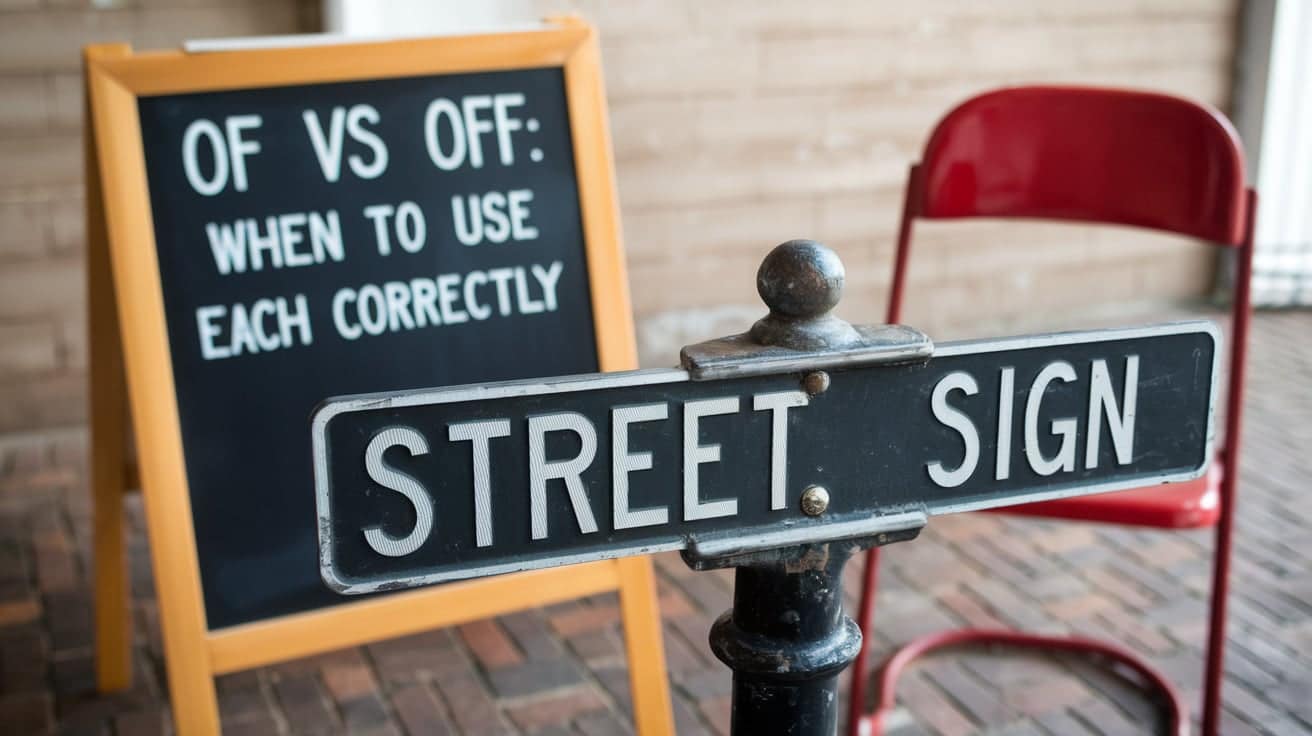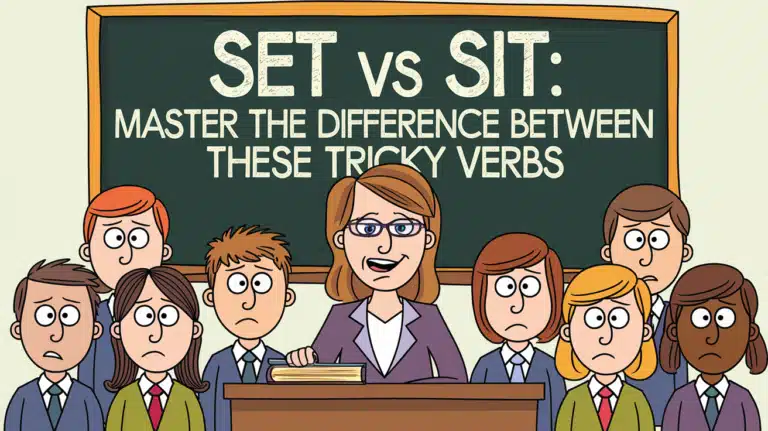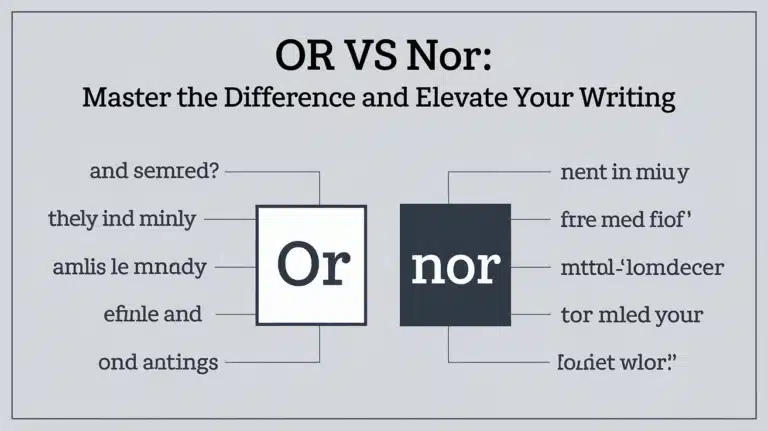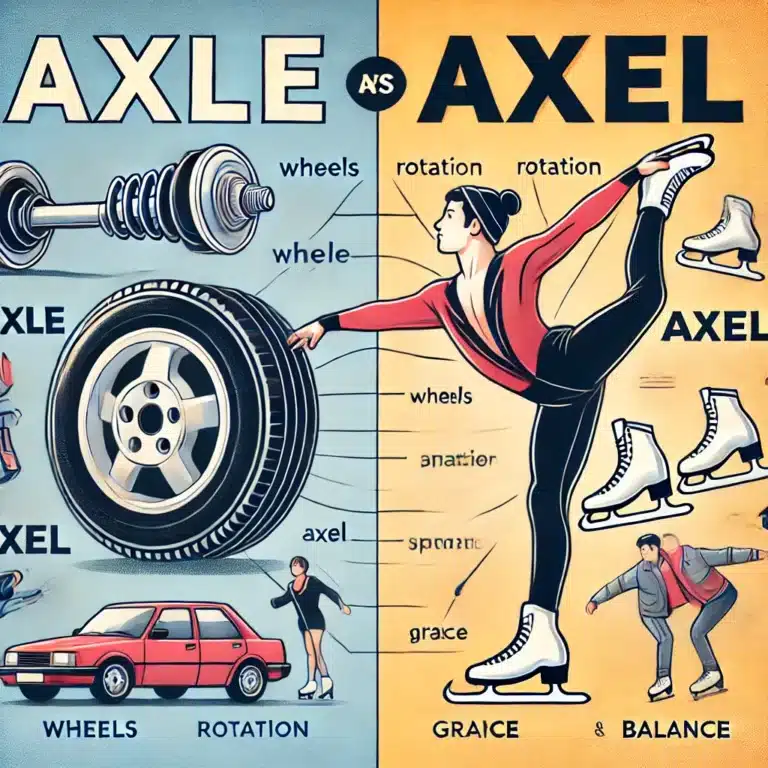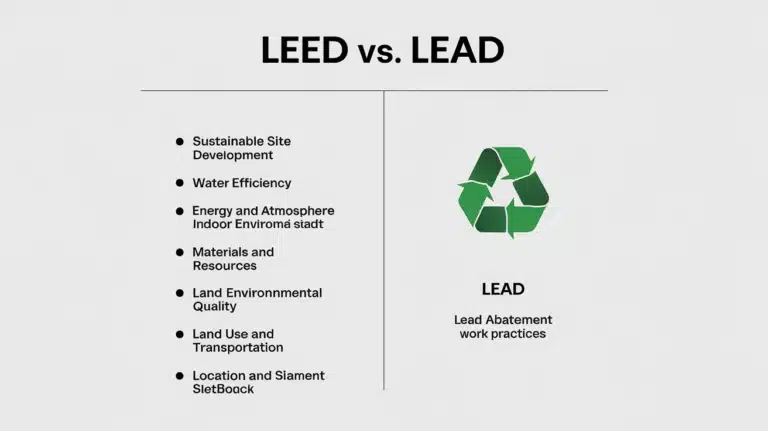Of vs Off: When to Use Each Correctly
When it comes to mastering English grammar, understanding the use of “of” vs. “off” can be challenging. These two common English words may look similar, but their meanings and uses are distinctly different. Misusing these words can lead to confusion, making it harder to express yourself effectively. This guide provides a comprehensive breakdown of the proper usage of “of” and “off,” helping you avoid common mistakes and improve your communication skills.
Understanding the Difference Between “Of” and “Off”
Basic Definitions and Usage
- “Of”: A preposition primarily used to show possession, relationships, or composition.
- Example: “The roof of the house is red.”
- “Off”: A preposition or adverb used to indicate separation, movement, or deactivation.
- Example: “He jumped off the wall.”
Key Functional Differences
| Feature | Of | Off |
|---|---|---|
| Role in Sentence | Preposition | Preposition/Adverb |
| Indicates | Possession, relationships, material | Separation, movement, disconnection |
| Example | “The wheels of the car are shiny.” | “He fell off the ladder.” |
Why Is There Confusion?
Similar Spellings and Pronunciations
The close spelling of these words leads many learners to misinterpret their meanings. Additionally, in some accents, their pronunciations may sound alike, compounding the confusion.
Overlapping Contexts in Informal Speech
In casual conversations, phrases like “get off of” blend the two words, creating ambiguity. For instance, “Get off of me!” could make learners think “of” and “off” are interchangeable.
Read More About: Much vs Many: A Simple Guide to Correct Usage
Common Errors in Written English
Writers often struggle with using these terms correctly. Examples include:
- Incorrect: “The benefits off the job are great.”
- Correct: “The benefits of the job are great.”
When to Use “Of”?
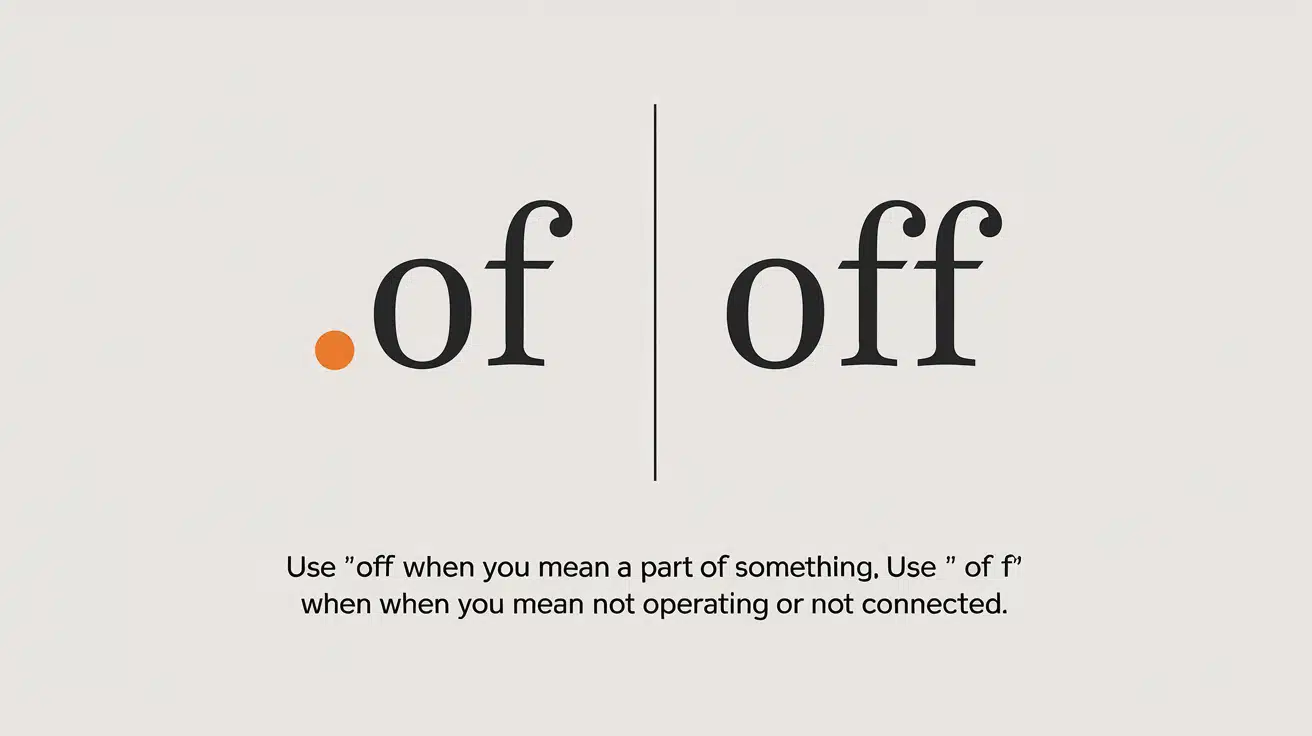
Indicating Possession or Relationships
Use “of” to show belonging or a relationship between two entities.
- Example: “The success of the project depends on teamwork.”
Expressing Part-Whole Connections
Use “of” to describe how parts relate to a whole.
- Example: “A slice of cake.”
Describing Quantities or Measurements
Use “of” to indicate amounts.
- Example: “A glass of water.”
Common Expressions and Idioms Using “Of”
- Of course
- In the middle of
- Piece of cake
These phrases are fixed and often used in everyday English.
When to Use “Off”?
Indicating Separation or Movement Away
Use “off” to describe something moving away or being removed.
- Example: “He got off the train.”
Referring to Deactivation or Disconnection
Use “off” for states of inactivity.
- Example: “Turn off the lights.”
Describing Physical Placement or Removal
Use “off” to show something not attached or removed.
- Example: “The sticker came off easily.”
Common Expressions and Idioms Using “Off”
- Off the hook
- Take off
- Off the charts
Common Mistakes and How to Avoid Them
Using “Of” Instead of “Off” for Movement or Separation
- Incorrect: “He jumped of the fence.”
- Correct: “He jumped off the fence.”
Using “Off” Instead of “Of” for Relationships or Possession
- Incorrect: “The benefits off the program are excellent.”
- Correct: “The benefits of the program are excellent.”
Mixing “Of” and “Off” in Part-Whole Expressions
- Incorrect: “A piece off cake.”
- Correct: “A piece of cake.”
Errors in Idiomatic Expressions Involving “Of” and “Off”
Misusing these words in phrases like “Get off of” or “Take of” can confuse readers. Always use the correct form.
- Correct: “Get off the couch.”
Etymology and Historical Evolution
Origins and Development of “Of”
The word “of” derives from Old English “of” or “æf,” meaning “away” or “from.” Its usage evolved to signify relationships and possession.
Origins and Development of “Off”
“Off” also has Old English roots, derived from “of” or “æf,” but with a focus on separation or removal.
How Their Usage Diverged Over Time
The divergence occurred as English became more standardized. “Of” took on relational meanings, while “off” retained its sense of separation.
Quick Comparison: “Of” vs. “Off” in Action
| Context | Of Example | Off Example |
|---|---|---|
| Possession/Relationships | “The pages of the book.” | Not applicable |
| Movement/Separation | Not applicable | “He ran off the field.” |
| Deactivation/Disconnection | Not applicable | “Turn off the fan.” |
| Part-Whole Relationships | “A member of the team.” | Not applicable |
Practical Tips to Master Their Usage
Contextual Cues to Identify the Right Word
- If it shows possession or relationships, use “of.”
- If it indicates separation or movement, use “off.”
Idiomatic Expressions to Memorize
- Of: “Of course,” “Out of luck.”
- Off: “Off the grid,” “Take off.”
Avoiding Common Pitfalls with Examples
Pay attention to fixed expressions. For example:
- Correct: “Turn off the alarm.”
- Correct: “A glass of milk.”
Conclusion
Mastering the use of “of” vs. “off” is crucial for clear communication. These words, though simple, play significant roles in expressing relationships, movement, and possession. By understanding their unique uses, you can avoid common mistakes and improve your grammar. Always consider the context and practice with examples to strengthen your grasp.

